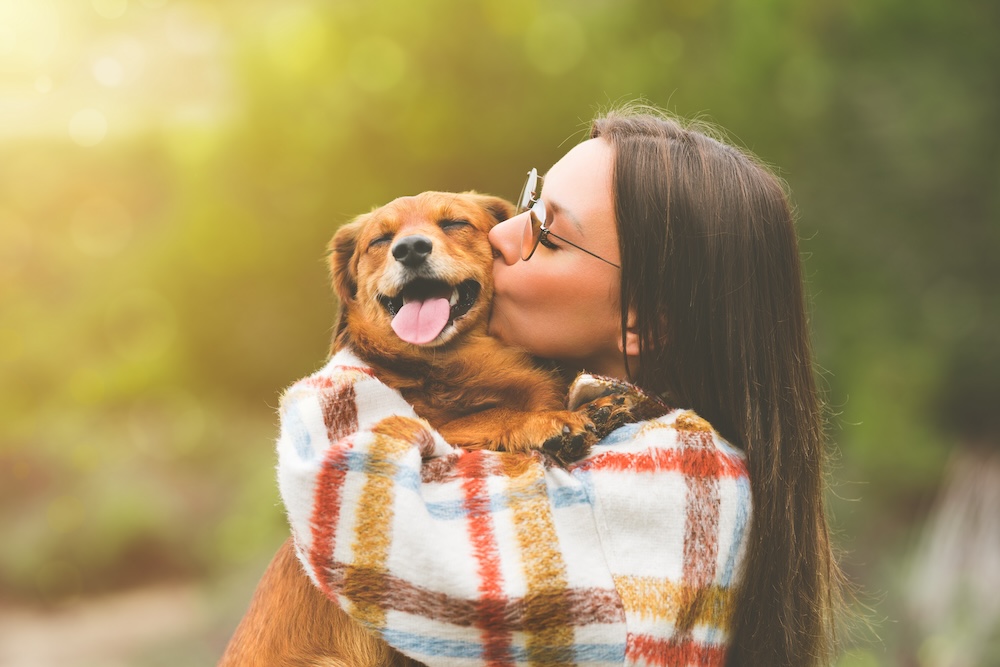Many people going through a divorce will say, “My dog is anxious. Do you think he/she knows I’m getting divorced?”
Here is my answer. Dogs have no idea what divorce is, but they do know when you are anxious, tense, angry or worried. The most useful questions to ask are: how is my dog responding to my stress and anxiety? How can I best help my dog if I am feeling anxious or angry? What are the signs to look for to know if my dog is okay?
My Dog is Anxious
First, let’s look at what happens to dogs when the people they live with are going through a difficult time such as divorce. Dogs are acuity aware of our moods and emotions and when their owners are stressed dogs often think something is wrong, or we are angry with them and this will affect their behavior in different ways.
The upbringing, breed, personality and age of a dog will determine how they respond to tension in a household.
-
Some dogs will become playful and clown-like, in response to a worried person; they may try to ‘snap you out of it’ by soliciting play, being silly, bringing you toys, barking, racing through the house trying to get you to chase them.
-
Other dogs become very quiet and still, will sleep more than normal, act unassuming, avoid being too close to people and seem to fade into the background.

-
Your dog may simply try to be close to you all the time, looking for more physical contact than normal.
-
Households with more than one dog might see that they play very rough with each other, act much more hyper than normal or possibly even have mini pseudo ‘fights’, especially if there has been yelling in the house.
-
-
Dogs with a history of abuse somewhere in his/her background may be very wary or even terrified of people who are upset or angry. These dogs may hide, avoid eye contact and appear nervous if their owners are in a bad mood. In extreme cases they may even urinate when you try to touch them or seem to threaten to bite – both behaviors are signs of a dog who feels terrified or defenseless. *
-
Regardless of how your dog handles stress in the household here are some tips to help your dog stay content if he/she is anxious:
-
The most valuable thing you can do is keep their routines and exercise consistent. When going through the difficult time of divorce, or when life gets turned upside down for whatever reason, it often happens that the dog’s normal outings get forgotten. Taking your best friend out for a good run or walk does wonders to settle a dog’s body and mind (and yours!). If you are not up to exercising your dog there is nothing wrong with getting support, hiring a dog walker or asking friend to take your dog out.
-
Have lots of healthy and appropriate chewing items available. Gnawing on delicious, textured varied toys will trigger the release of endorphins for your dog which lets them ‘self-medicate’ for anxiety and stress. Do your research, make sure you have safe, appropriate toys or chews for your dog.
-
Often what looks like stress or anxiety in dogs is actually boredom; if they don’t get enough exercise dogs are more likely to chew inappropriate things, destroy parts of the house, dig up the garden, howl or bark more than normal, and act manic whenever they get out of the house. If your dog has showed any of these behaviors, is it most likely a signal that they need more healthy outlets for their energy.
Regardless of your individual dog’s reaction to tension at home and/or a divorce, please know that it is not permanent. The good news is stressful periods don’t normally have long term negative effects on dogs! One of the many wonderful things about our four-legged pals is that they can often shift their moods a lot quicker than people can. Once your life starts to feel settled, even if things are very different than before, your dog will be back to his or her happy self again.





















